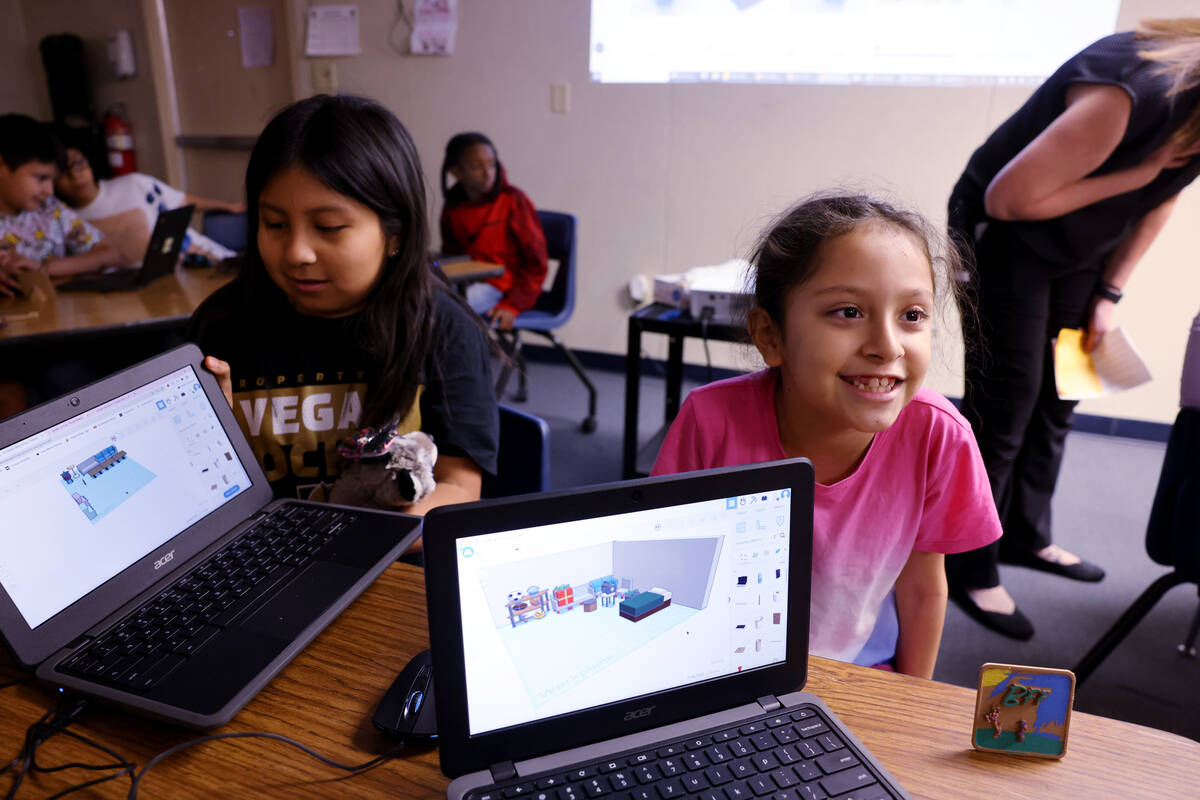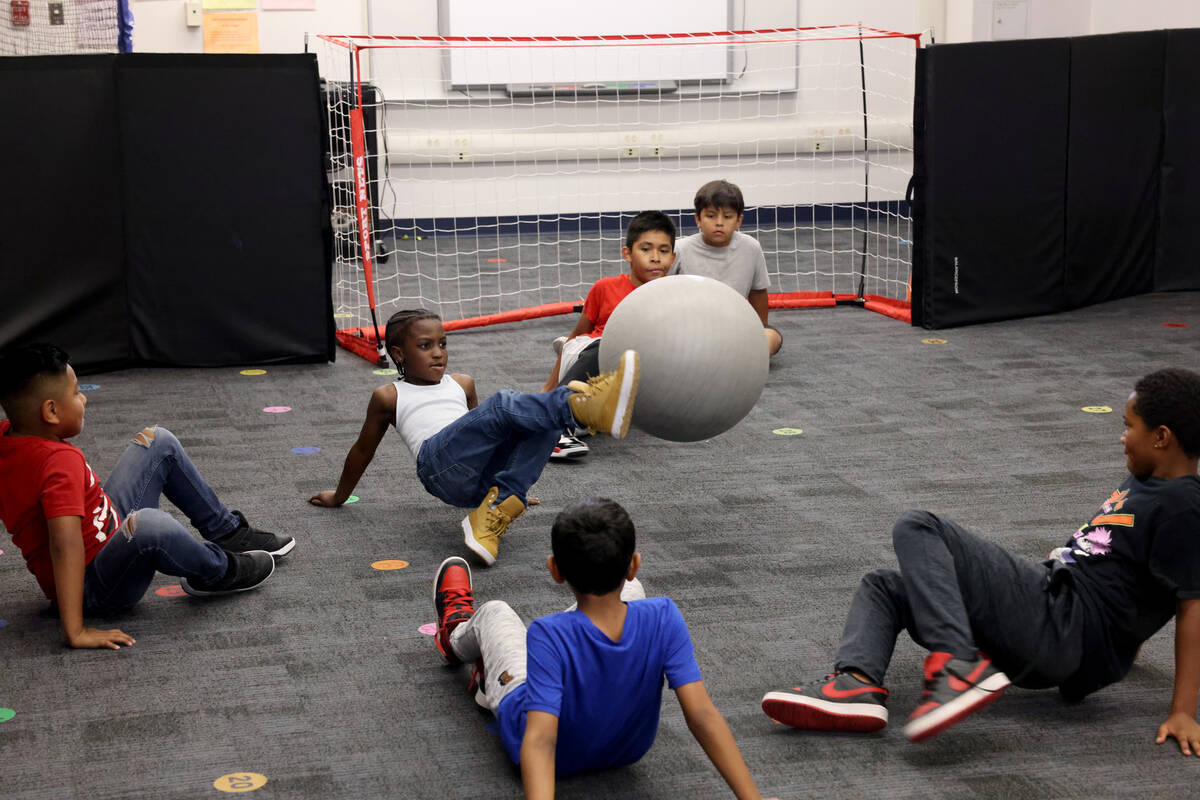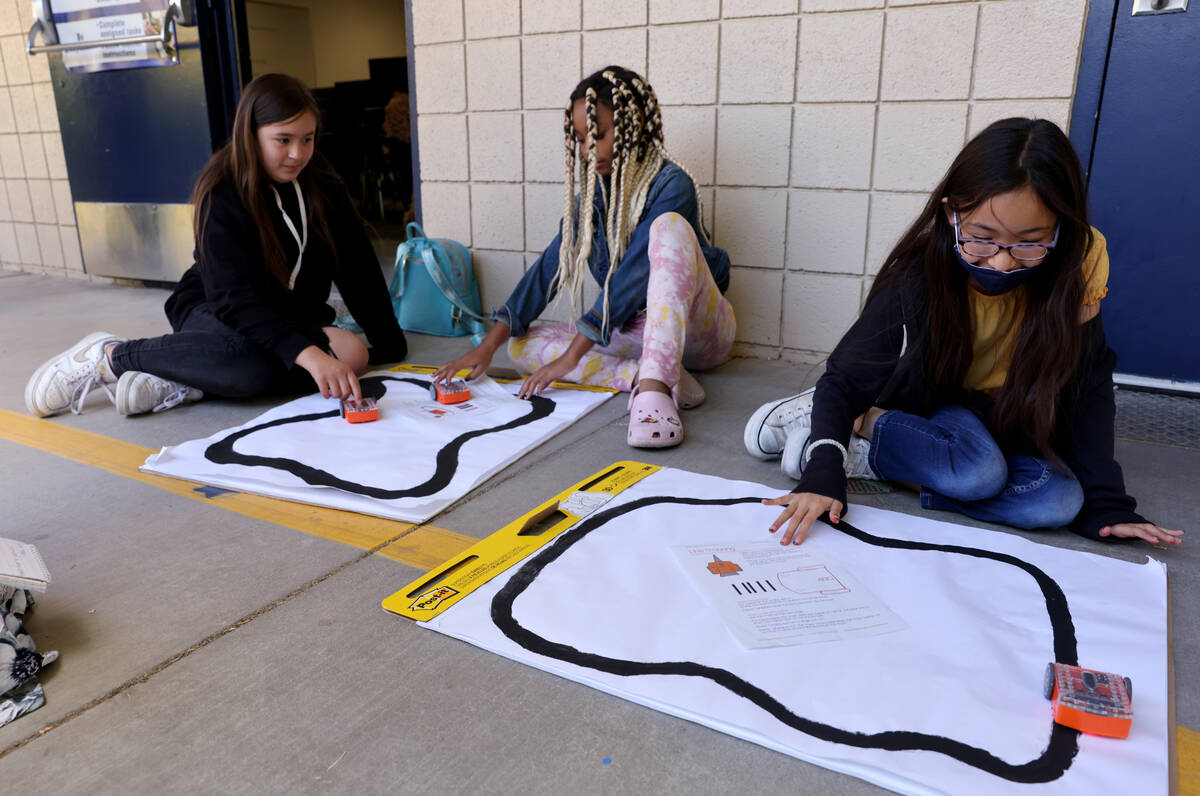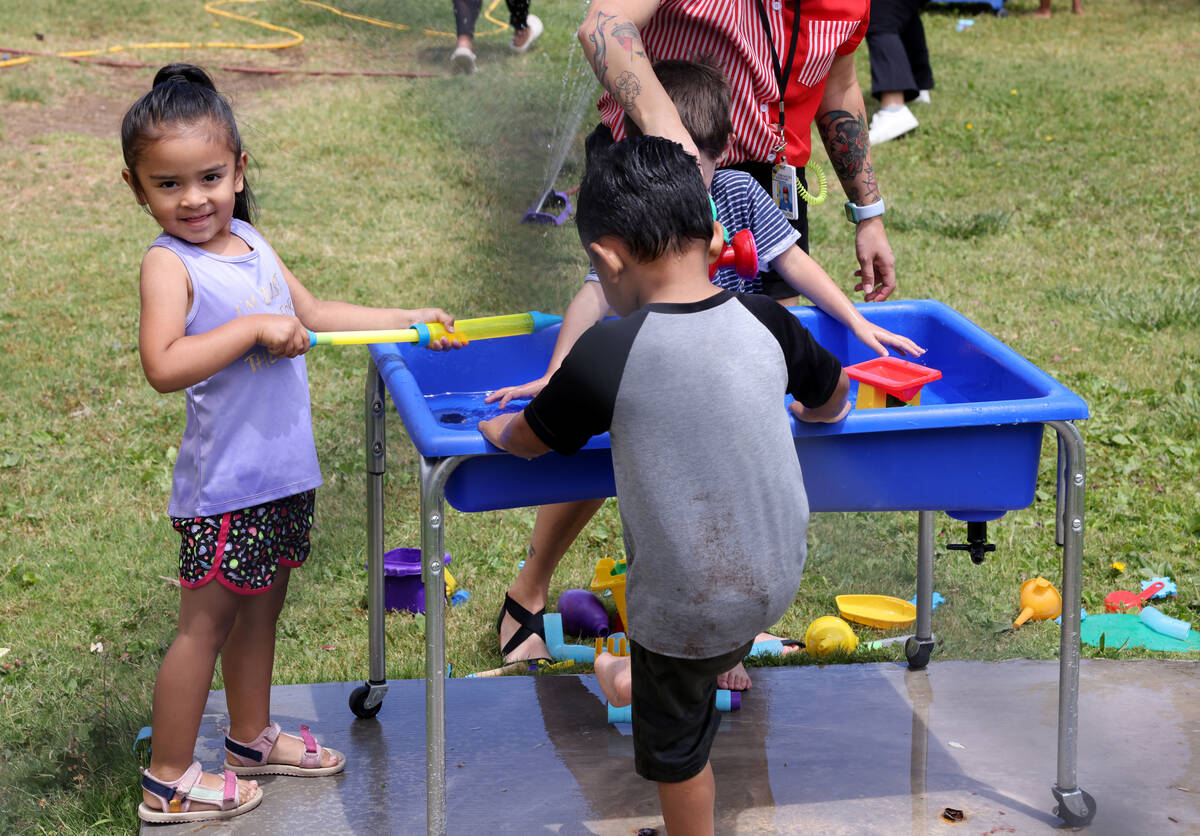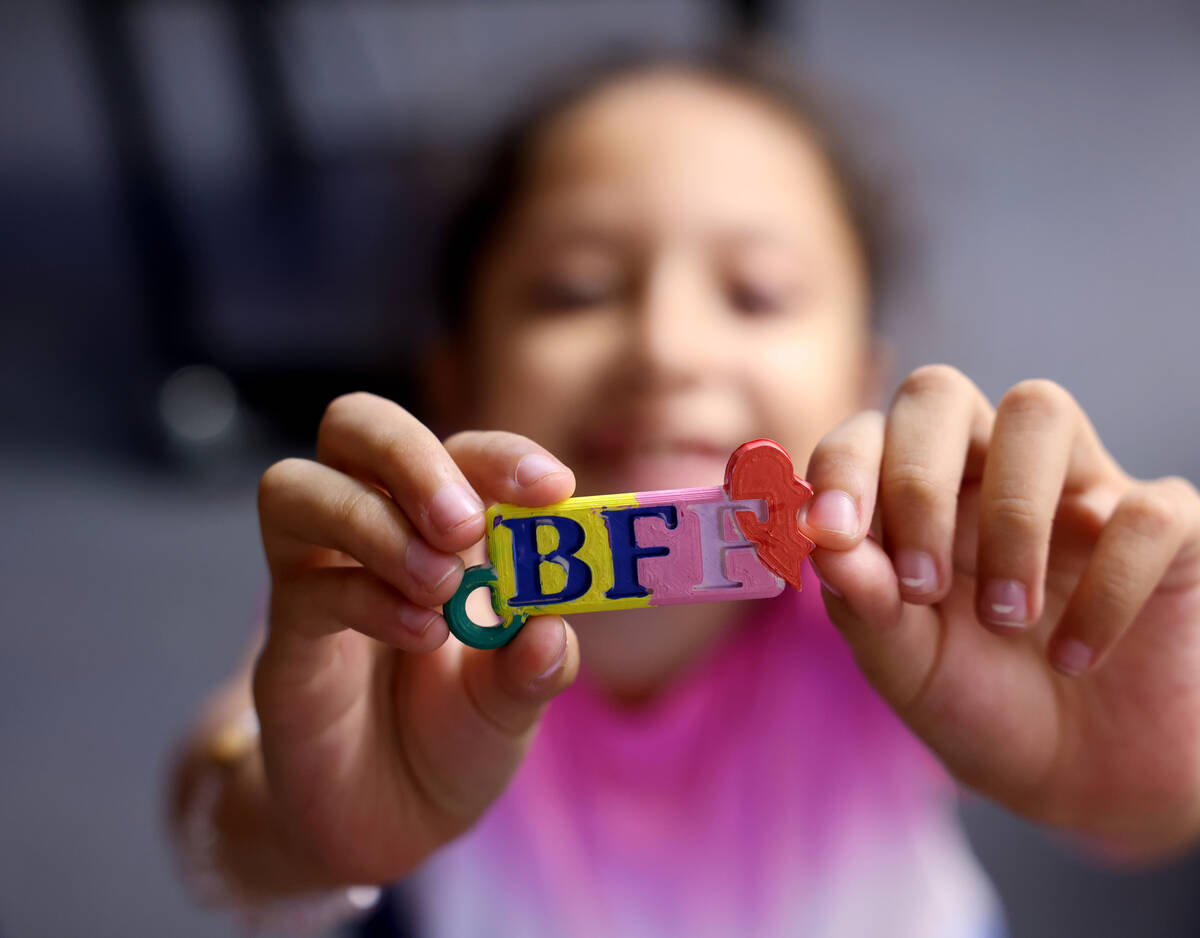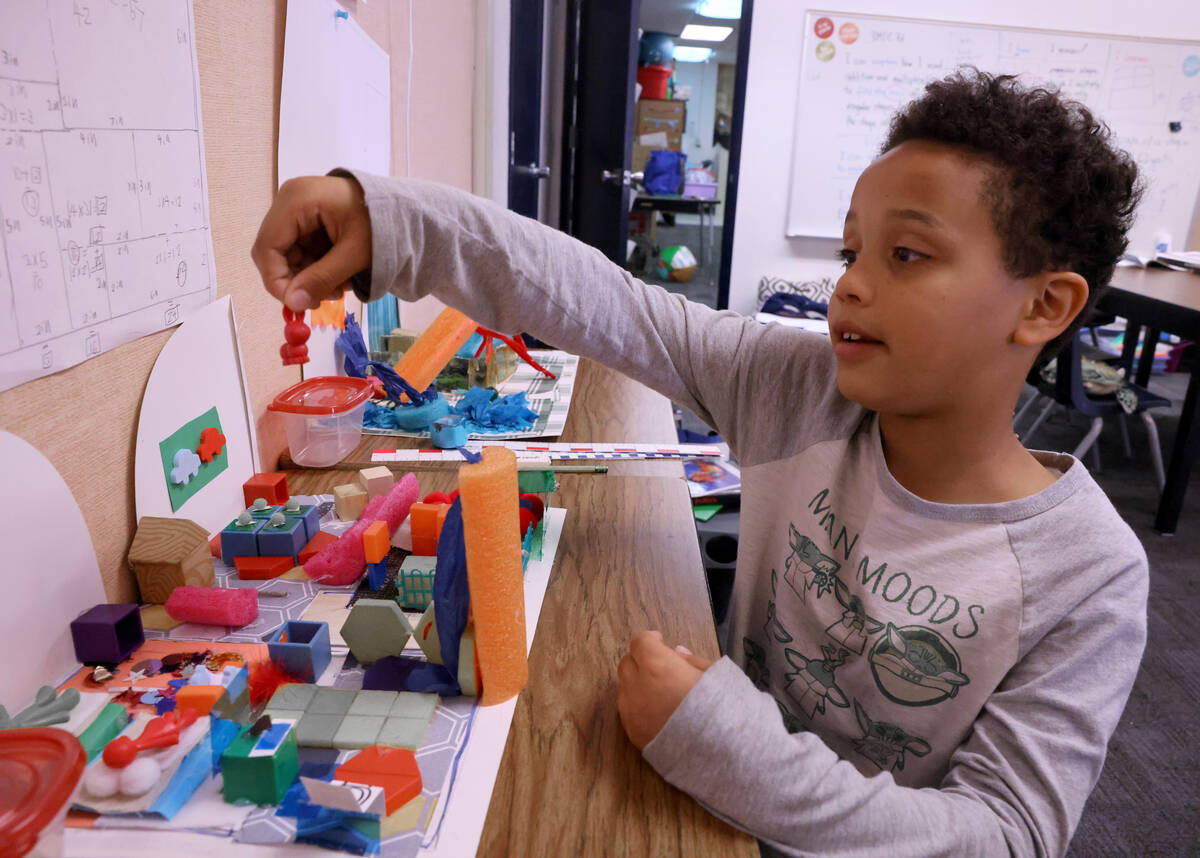‘More in-depth learning’: CCSD’s free summer program sees 80K students
Hancock Elementary School student Sofia Martinez thought 3D printing was boring at first, but quickly changed her mind after discovering what she could make.
“We get to print our own things,” the 9-year-old said.
On Monday during a 3D printing class — part of a summer school program — Sofia was among 10 students working on designs using laptop computers.
Patricia Hernandez, 9, said her favorite creation so far is a “broken heart” BFF (best friends forever) keychain that she painted after printing it.
The Clark County School District’s three-week “Summer Acceleration” program — free for students in preschool through 12th grades — began May 30 and concludes Friday.
In addition to academic instruction, it includes extracurricular activities and a focus on social-emotional well-being.
Summer Acceleration offers full school days five days a week, but scheduling is flexible and families can pick and choose which days to attend.
At Hancock, about 50 percent of the day is spent on academics and 50 percent on extracurriculars — “what we call the fun stuff,” Assistant Principal Sandy Zurbriggen said.
Zurbriggen said the pace is “looser” than during the regular school year, but educators still monitor students’ learning.
Hancock third grade teacher Veronica Dannaker said Summer Acceleration allows for project-based and small-group learning.
“It’s exciting because we actually have a lot more flexible time,” she said.
Created during the pandemic
Summer Acceleration was created in 2021 during the COVID-19 pandemic.
The district operated under 100 percent distance learning for about a year before in-person classes resumed in spring 2021.
The school district covers the cost of operating the program, now in its third year, using federal coronavirus relief money.
Approximately 79,023 students are participating in this year’s Summer Acceleration — 26 percent of its roughly 304,000 students, the district said.
Numbers have dropped slightly compared with the 82,940 students participating in summer 2022, but are up compared with 71,927 in summer 2021.
In addition to Summer Acceleration, some district campuses are offering “extended school year” June 22-July 18 for students who have special needs. And middle and high schools are running summer school in two three-week sessions that continue through early July.
Summer Acceleration at Hancock
About 250 Hancock students signed up for Summer Acceleration, but day-to-day attendance hovers around 150.
The school has fewer participating students this year — they’ve had as many as approximately 350 in the past — as families may be more open to traveling now than during the pandemic, Zurbriggen said.
“I think they’re trying to return to normalcy a little bit,” she said.
The summer school program includes remediation for reading and math, as well as acceleration for students, Dannaker said. “It’s more in-depth learning, really.”
Her students are calculating the areas of shapes, which they normally just do on a piece of paper. But during summer school, they made a floor plan for a structure of their choice such as zoos, water parks and homes, and then built replicas.
In addition to traditional academics, there’s a social-emotional learning class this summer at Hancock where students do activities such as coloring and puzzles, while also working on skills such as team building and communication.
In addition to the normal “specials” classes such as art, students pick an elective class they attend every day. They have about five options, including 3D printing and robotics.
Students also have more recess time than they do during the regular school year.
Students who have special needs and are in self-contained classrooms are taking walking field trips to nearby places such as the library.
In one classroom Monday, students in a physical education classroom were playing a game of “crab soccer.” As part of the class, students also made up their own games.
In a different classroom, students were manipulating small robots on a large piece of paper with a track outlined in black marker.
Jenny Moctezuma said the robots were line tracking. She pointed out one of them, saying, “That one, when you clap, it moves.”
Kailynne Colon-Morgan said what she likes about using a robot is “how it can scan something and it will do it.”
It’s the first time the two girls have experienced robotics, and they want to learn more — even after Summer Acceleration is over.
Contact Julie Wootton-Greener at jgreener@reviewjournal.com or 702-387-2921. Follow @julieswootton on Twitter.



